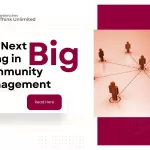Introduction
Community management is more than just managing a group of people online.
It’s about building strong, engaged communities that benefit the members and the organization behind them.
You need more than basic communication skills to be a successful community manager.
In this post, we’ll explore the top 10 skills every community manager must have to thrive in this dynamic field.
The most essential skill for any community manager is the ability to communicate effectively.
Whether it’s responding to questions, moderating discussions, or resolving conflicts, clear communication is crucial.
Your community members need to feel heard and understood, and you need to express yourself in a way that is professional yet approachable.
1.Excellent Communication Skills
Effective communication also involves active listening.
A great community manager listens to their members’ needs, concerns, and suggestions, then responds appropriately.
This builds trust and keeps the community engaged.
2. Empathy and Emotional Intelligence
Empathy is key in community management best practices.
Community members come from different backgrounds, and they’ll bring diverse emotions to the table.
A successful community manager should be able to empathize with members, recognizing their feelings and responding with compassion.
Emotional intelligence is also necessary for handling difficult situations.
When conflicts arise, being able to manage emotions both yours and others’ is essential for maintaining harmony in the community.
3. Organizational Skills
Managing an online community requires excellent organizational skills.
You’ll need to stay on top of conversations, keep track of member issues, and ensure that important updates or announcements are communicated effectively.
Having a system in place to organize your daily tasks will help you stay efficient and proactive.
Using community management tools can be a game changer here.
Platforms like Hootsuite, Slack, and Trello help streamline communication, schedule posts, and organize workflows, keeping everything running smoothly.
4. Conflict Resolution
No matter how positive your community is, conflicts will inevitably arise.
Whether it’s disagreements between members or complaints about the platform, being able to resolve these issues quickly and calmly is one of the top skills for community managers.
When managing conflict, always maintain a neutral stance and avoid taking sides.
Encourage open dialogue and listen to all parties involved.
Use conflict resolution techniques such as finding common ground and ensuring that every member’s perspective is acknowledged.
5. Knowledge of Community Management Tools
To be a successful community manager, familiarity with online tools is crucial.
Many tools are designed specifically to help with community engagement strategies, moderating conversations, and tracking analytics.
Here are some tools that can help:
Discourse for managing forums
Slack for building a more corporate or internal community
Facebook Groups for social engagement
Sprout Social or Hootsuite for scheduling and social media management
Discord for fostering niche communities
Knowing how to use these platforms to their fullest potential will give you a competitive edge and ensure you’re staying on top of your community’s needs.
6. Adaptability
Communities are ever-changing.
Trends come and go, and members’ expectations shift.
To be an effective community manager, adaptability is crucial.
You must be flexible enough to adjust to new developments, whether it’s a change in the platform you’re using or a shift in the type of content your members prefer.
Staying updated on community management best practices and industry trends helps ensure you remain relevant and continue to offer value to your community.
7. Content Creation Skills
Creating engaging content is vital to keeping your community active and involved.
Whether it’s writing blog posts, creating discussion prompts, or sharing videos and images, content that resonates with your community will help drive engagement.
To be effective in this, you’ll need to understand what type of content your community prefers.
Do they enjoy tutorials?
Discussion threads?
Polls?
Knowing your audience is key to successful content creation.
8. Data-Driven Decision Making
Successful community managers don’t just rely on instincts they also use data to make informed decisions.
Most platforms provide community management tools that offer insights into engagement levels, the most popular content, and even member sentiment.
Using these metrics, you can tailor your strategy to better meet the needs of your community.
Tracking analytics not only helps improve community engagement strategies but also provides evidence of your community’s growth and value to stakeholders or employers.
9. Patience
Patience is often overlooked but incredibly important in community management.
Building a strong, engaged community doesn’t happen overnight.
It takes time to build trust, nurture relationships, and grow membership.
As a community manager, you must remain patient and persistent even when progress seems slow.
Patience is also necessary when dealing with difficult members.
Remaining calm and patient will help you effectively handle complaints, criticism, and disputes without escalating the situation.
10. Understanding of Marketing Principles
While community management isn’t solely about marketing, having a solid grasp of basic marketing principles can be a huge asset.
Many communities are built around a brand or product, and as a community manager, you’re often in a position to subtly promote these while keeping your community engaged.
Knowing how to promote without being too salesy is a delicate balance.
You’ll need to weave your messaging into conversations organically, ensuring it feels like a natural part of the dialogue rather than forced promotion.
Final Thoughts
Being a successful community manager requires a diverse skill set that goes beyond simply moderating conversations.
You must be a good communicator, a problem-solver, and a strategic thinker all at once.
Community management best practices are constantly evolving, and by developing the 10 skills mentioned above, you’ll be well-equipped to create and nurture an online space that thrives.
If you’re aspiring to become a community manager, remember that it’s a role that grows with time.
As you continue to engage with members, improve your use of community management tools, and refine your community engagement strategies, you’ll naturally evolve into a trusted and successful figure in your field.





